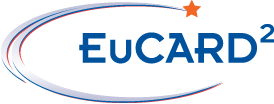What is EuCARD-2?
EuCARD-2 is an Integrating Activity Project for coordinated Research and Development on Particle Accelerators, co-funded by the European Commission under the FP7 Capacities Programme. This project will contribute to positioning European accelerator infrastructures at the forefront of global research. Watch the short introductory video.
Who is involved?
The project has 40 partners from 15 European countries, including Russia. The list of partners include 10 accelerator laboratories, 23 technology institutes/universities, 5 scientific research institutes and 2 industrial partners.
What benefits does EuCARD-2 offer?
EuCARD-2 has 6 networking activitites, including close collaboration with Industry. The goal of the Networking activities is to break the barriers between traditional communities and foster a coherent and multi-disciplinary approach to the complex and multiform issues of upgrading highly sophisticated infrastructures.
The project includes 2 activities for opening up 3 advanced accelerator test facilities in Europe. The aim of the project under the Transnational Access activities is to offer a framework to share access with all researchers, inside and outside the Consortium, to perform novel experiments and tests with different beams, materials in highly irradiated environment, and testing of magnets and instrumentation. The 3 selected facilities are unique and innovative facilities representing modern facets of accelerator sciences, located in world-class laboratories, which have been recently opened or upgraded.

The 4 joint research activities are organized around recent technological challenges for accelerators. At this crucial time for particle accelerators, the activities will address the technological limits of current machines with regard to magnetic fields, RF gradient and technologies, and collimator materials. One JRA will focus on plasma-wakefield acceleration as an alternative to the present approaches.


